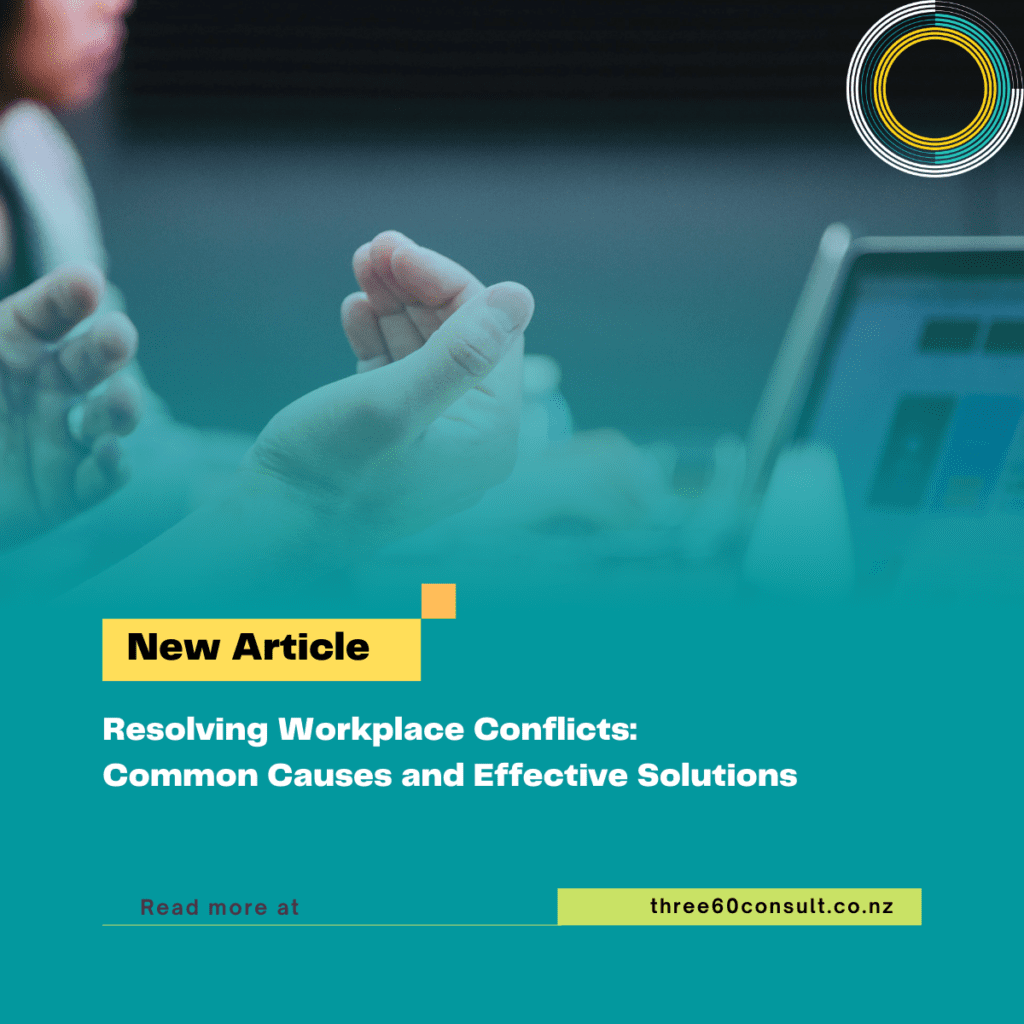Workplace conflicts are like unwanted guests – they tend to show up uninvited and disrupt the harmony. Understanding the root causes of these conflicts is an important first step toward finding effective solutions. Here, we delve into four of the common reasons for workplace conflicts that we come across and provide a range of strategies, from low-level interventions to more escalated approaches, to help address and resolve them.
1. Differences in Communication Styles:
Miscommunication is a common catalyst for workplace conflicts. People have diverse ways of expressing themselves, leading to misunderstandings and tension.
Low-Level Intervention:
• Foster a culture of open communication (note this is different from a culture of saying whatever you want).
• Implement policies outlining what type of communication is and isn’t acceptable.
• Provide communication workshops to enhance skills in active listening and clarifying messages to ensure understanding.
Escalated Approach:
• Reiterate expectations when conflict arises relating to communication.
• Mediation can be beneficial when conflicts persist despite improved communication efforts.
2. Differences in Work Styles:
Varied work methods and approaches can create friction, especially when team members don’t appreciate each other’s methodologies.
Low-Level Intervention:
• Promote understanding of different work styles within the team.
• Encourage colleagues to adapt and appreciate diverse approaches.
Escalated Approach:
• Conduct conflict resolution training to help people navigate differences constructively.
• Involve HR, a well-respected manager, or a mediator to work through disputes and find compromises.
3. Lack of Recognition and Fairness:
When employees feel undervalued or unfairly treated, it can lead to resentment and hostility in the workplace.
Low-Level Intervention:
• Implement regular feedback sessions to acknowledge and appreciate employees’ contributions.
• Ensure transparency in promotions, assignments, and recognition.
Escalated Approach:
• Establish transparent performance evaluation processes.
• Involve HR or a neutral mediator to address concerns about recognition and fairness, ensuring a fair resolution.
4. Conflicting Interests and Goals:
When individual goals clash with team objectives, it can lead to resentment and disputes among colleagues.
Low-Level Intervention:
• Facilitate team-building activities to promote a sense of shared purpose.
• Encourage goal alignment within teams.
Escalated Approach:
• Establish clear team goals and individual roles.
• Seek third-party facilitation if conflicting interests continue to disrupt teamwork.
Addressing workplace conflicts requires a combination of understanding, appreciation, communication, and intervention strategies. By recognising the causes early on and applying appropriate solutions, organisations can create work environments where conflicts are minimised, and employees can focus on their tasks productively.
If you would like to understand more about how our team of experts can assist your workplace to upskill in conflict management or address ongoing conflict, please get in touch with us.









